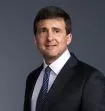Keywords: FCC, TCPA rules, automated text messages
The Telephone Consumer Protection Act ("TCPA"),1 generally prohibits automated calls to mobile devices without the prior express consent of the called party. Courts, along with the Federal Communications Commission ("FCC"), have also extended this principle to automated text messages. After a request from the package delivery industry, however, the FCC recently issued an order in In re Cargo Airline Ass'n Petition for Declaratory Ruling exempting certain free-to-end-user text messages from the TCPA's rules.2 The Cargo Airline Order may provide a model for other industries looking to communicate with consumers through automated calls or texts without falling afoul of the TCPA's rules.
Congress empowered the FCC to exempt automated calls and text messages to mobile devices if the calls are "not charged to the called party."3 In deciding whether to exempt particular calls, the FCC is authorized to issue restrictions "necessary in the interest of the privacy rights [the TCPA] is intended to protect." While the FCC has used separate authority to exempt calls from a wireless carrier to its customers for which the customers are not charged, the Cargo Airline Order represents the first use of Section 227(b)(2)(C) authority for non-carrier calls. As the first such exemption, the circumstances of the Cargo Airline Order therefore offer important guidance about the FCC's views on its Section 227(b)(2)(C) authority, and the potential for other industries to escape the confines of the TCPA for free-to-the-end-user calls or messages. Securing an exemption from the FCC might also allow businesses to forestall potential TCPA class actions—which have been a growth area for the plaintiffs' bar in recent years.
The FCC granted an exemption for automated package delivery notifications that meet seven criteria.
- First, the notification must be free to the recipient. The petition noted that the industry had partnered with the major mobile providers to offer free-to-the-end-user text messages.
- Second, the notifications must be informational only; they cannot include any telemarketing, solicitation or advertising content.
- Third, delivery companies must offer the ability to opt-out of receiving such messages.
- Fourth, information about the ability to opt-out must be included in the message. Voice calls must offer automated, interactive opt-out methods (such as a key-press), and, if the call could be answered by an answering machine or voicemail, it must also include a toll-free number to call to opt-out. Text messages must include the ability to opt-out via a "STOP" response from the recipient.
- Fifth, only one notification can be sent per package (with one additional message allowed after two unsuccessful delivery attempts).
- Sixth, notifications must be sent only to the recipient.
- Finally, the notifications must include the name and contact information of the delivery company.
Under these conditions, the FCC concluded that the messages were generally ones that consumers expected to receive and from which consumers would benefit. It therefore granted the requested exemption.
For companies that similarly wish to provide automated informational notifications to consumers, the Cargo Airline Order provides helpful insight into the issues on which the FCC will focus in evaluating a potential exemption request. Companies seeking an exemption should be prepared to show the steps they are willing to take to protect consumer privacy and avoid costs to consumers. Indeed, other requests for similar exemptions may follow in the near future as the FCC has demonstrated a willingness to exempt free-to-the-end-user messages from the TCPA's requirements. Most importantly, a company's automated calls or text messages will need to be free-to-the-end-user in order to permit the FCC to invoke its Section 227(b)(2)(C) authority.
Footnotes
1 47 U.S.C. § 227.
2 See Order, In re Cargo Airline Ass'n Petition for Declaratory Ruling, CG Dkt. No. 02-278 (F.C.C. 2014).
3 47 U.S.C. § 227(b)(2)(C).
Originally published April 2014
Visit us at mayerbrown.com
Mayer Brown is a global legal services provider comprising legal practices that are separate entities (the "Mayer Brown Practices"). The Mayer Brown Practices are: Mayer Brown LLP and Mayer Brown Europe – Brussels LLP, both limited liability partnerships established in Illinois USA; Mayer Brown International LLP, a limited liability partnership incorporated in England and Wales (authorized and regulated by the Solicitors Regulation Authority and registered in England and Wales number OC 303359); Mayer Brown, a SELAS established in France; Mayer Brown JSM, a Hong Kong partnership and its associated entities in Asia; and Tauil & Chequer Advogados, a Brazilian law partnership with which Mayer Brown is associated. "Mayer Brown" and the Mayer Brown logo are the trademarks of the Mayer Brown Practices in their respective jurisdictions.
© Copyright 2014. The Mayer Brown Practices. All rights reserved.
This Mayer Brown article provides information and comments on legal issues and developments of interest. The foregoing is not a comprehensive treatment of the subject matter covered and is not intended to provide legal advice. Readers should seek specific legal advice before taking any action with respect to the matters discussed herein.

